1641 The wisdom of trees
The Tree Whisperer: Writing Poetry by Living in the World
by Harold Rhenisch
Kentville, NS: Gaspereau Press, 2021
$29.95 / 9781554472314
Reviewed by Adrienne Fitzpatrick
*
 I have spent the last few weeks in the company of a tree whisperer going from tree to tree on Sylix lands, absorbing the fruits revealed by light and shadow. The wind and the snow and sun have pelted and caressed me. Stones and insults have been hurled. Scrapes and falls have been interspersed with thoughts on colonial ways of conquering the land and compartmentalizing the mind and intellectualizing poetry. These thoughts run like roots through this book, from tree to tree, often threatening each tree’s health and abundance. Harold Rhenisch examines each branch as he discards colonized ways of thinking, educating, and living, and he discards branches that will not bare fruit. Like a shaman, Rhenisch has learned through experience which branches will have to be cut to reveal light and space so fruit can grow. This is a book that is “both a body and a tree … I name this body we are walking within right now The Tree Whisperer because its what my friend Jim calls me.”
I have spent the last few weeks in the company of a tree whisperer going from tree to tree on Sylix lands, absorbing the fruits revealed by light and shadow. The wind and the snow and sun have pelted and caressed me. Stones and insults have been hurled. Scrapes and falls have been interspersed with thoughts on colonial ways of conquering the land and compartmentalizing the mind and intellectualizing poetry. These thoughts run like roots through this book, from tree to tree, often threatening each tree’s health and abundance. Harold Rhenisch examines each branch as he discards colonized ways of thinking, educating, and living, and he discards branches that will not bare fruit. Like a shaman, Rhenisch has learned through experience which branches will have to be cut to reveal light and space so fruit can grow. This is a book that is “both a body and a tree … I name this body we are walking within right now The Tree Whisperer because its what my friend Jim calls me.”
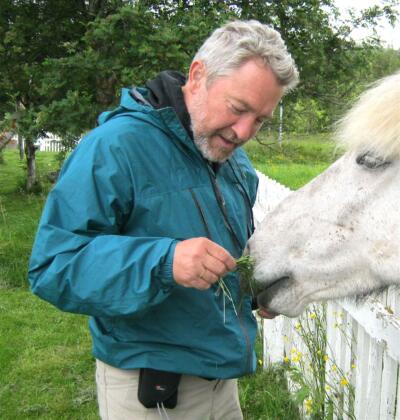
The Tree Whisperer is beautiful, with a cover both rough and smooth like bark. When I received it, I was overwhelmed by its size (256 pp.), but as I started reading, Rhenisch’s approach to creating poetry became clear:
Be. It’s best quickly to shed the idea that you are writing a poem. Approach it instead as a flow of energy. In its presence, you find it at best. You don’t write it. You might translate it, but that is a far different thing.
In this way, The Tree Whisperer unfolds with each paragraph as a poem in a structure that reflects Rhenisch’s experience of the land through the art and mechanics of pruning fruit trees:
Once a paragraph has given fruit, it is necessary to move on to the next tree. I cannot do that for you, but I can plant trees for you and invite you to brush their leaves with your fingers. They sound like rain.
Rhenisch apprenticed to the land in his father’s orchard in the South Okanagan at the age of twelve — hard work that he points out would be considered child abuse today. There is no bitterness or regret in this as it made him the poet and man he is. Trees shaped and continue to shape his life, education, and poetry. Trees are poetry, and Rhenisch is a tree. Once I got my head around it, I was there with him, following him through his orchard and the lands and rivers of his home in the North Okanagan. Each paragraph is expertly crafted to reveal some light from shadow, and when it ends, we are on to the next one. This is the poem. This is the book. And through these wanderings of the orchards and his mind, we follow Rhenisch through poems as he does his work. The work of pruning is also the work of decolonizing – of the mind, of the land, of the self:
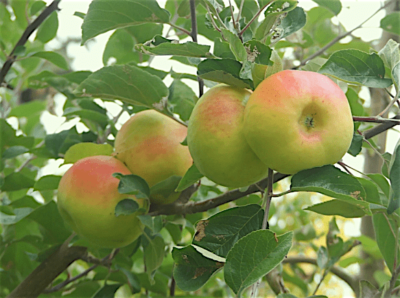
In the journey out of dominion by colonial images, the first cut — the cut of your self, the casting away of private ownership of self and location — is terrifying. The following cuts are easier after that big one.
In working and becoming one with the land, Rhenisch has educated himself on the violent colonial past of the land and the Sylix people, who have occupied the land since time immemorial:
“There was another massacre at Okanagan Landing, below your house,” my friend said to me another day. They just lined up our people on the lakeshore and put a bullet into their heads, one at a time.” The site is now a swimming beach, split between the City of Vernon and the Okanagan Valley Indian Band’s Priest Valley reserve. People come from the mountains now to display their nearly naked bodies on imported sand in the sun. Ghosts walk between them.
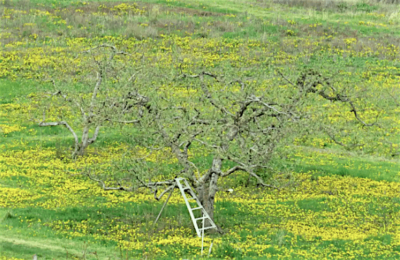
Ghosts walk with us on the journey through the orchards — ghosts of the land and Rhenisch’s ancestors. In his work on decolonizing himself, he seeks his own ancestral roots, learning that “my ancestral path is to prune the light flowing from the stars. It is a magical shamanic skill.” Learning who you are and where you come from is an important part of the work in this book. Rhenisch quotes the Anishinaabe elder Chickadee Richard, who states succinctly that “decolonization means ‘going back to the ceremonies, knowing where you came from, our history and how it shaped us.’” Rhenisch takes us on a journey to his ancestral homeland, stating that, “it is poverty to live without ancestors or a cool appraisal of the self from a distance. I can’t imagine.”
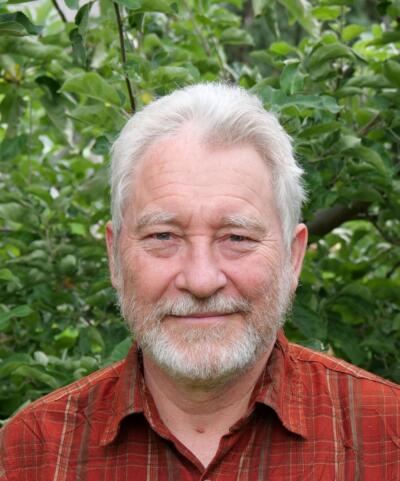
As in any orchard, there are fruits that taste especially good, that hit you with flavour, warmth, and magic. The taste, the fruit, is inseparable from the experience of being in an orchard embraced by weather and mood. Rhenisch summarizes his transformation from pruner to tree whisperer: “I used to prune trees. Now I prune shadows and light. I work to increase a tree’s ability to capture light within fruit and, by extension, a poem’s ability to fill the space it holds.”
At times The Tree Whisperer seemed too long and repetitive and would have been more powerful with tighter editing, but I enjoyed the journey and I appreciated Rhenisch’s deep connection to place and land, a theme that run through my own work. There is wisdom to savour in Harold Rhenisch’s approach to poetry, in his deep commitment to his personal journey of decolonization, and in the many beautiful images provided here for a reader’s soul and mind to reflect on.
And I’ve started to notice the space between the bare branches held by the stark fall sky.
*
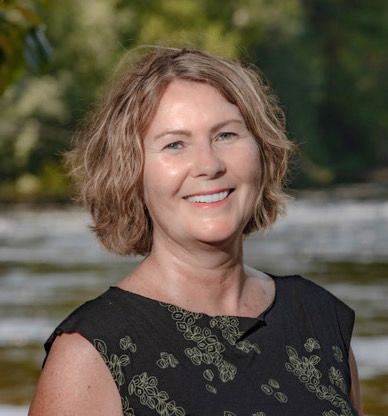
Adrienne Fitzpatrick grew up in the north and returned to complete her Masters in English at the University of Northern British Columbia; her creative thesis won the John Harris Prize for the best in Northern Fiction. Her fiction and poetry have appeared in Prairie Fire, CV2, subTerrain, The New Quarterly, and Thimbleberry. Her art reviews have appeared in Border Crossings, C Magazine, and Canadian Art. She explores the phenomenological experience of place in her work and her first book, The Earth Remembers Everything (Caitlin, 2012) is based on her experiences travelling to massacre sites in Europe, Asia, the Central Interior, and Northwest Coast of BC; it was also short-listed for the 2014 George Ryga Award for Social Awareness in Literature. Instructions for a Flood, based on her experiences of living and working with Indigenous Nations in the Central Interior and Northwest of BC, is coming out from Caitlin Press in Spring 2023.
*
The British Columbia Review
Publisher and Editor: Richard Mackie
Formerly The Ormsby Review, The British Columbia Review is an on-line book review and journal service for BC writers and readers. The Advisory Board consists of Jean Barman, Wade Davis, Robin Fisher, Barry Gough, Hugh Johnston, Kathy Mezei, Patricia Roy, Maria Tippett, and Graeme Wynn. Provincial Government Patron (since September 2018): Creative BC. Honorary Patron: Yosef Wosk. Scholarly Patron: SFU Graduate Liberal Studies.
“Only connect.” – E.M. Forster
16 comments on “1641 The wisdom of trees”